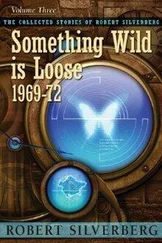With sufficient, but not too extravagant regret, Mrs Duchemin raised her voice to say:
'Oh dear! Oh dear! But you must see my husband and the pictures after you have come so far.'
A rather considerable volume of harsh sound was coming through the end wall of the room--the barking of dogs, apparently the hurried removal of pieces of furniture or perhaps of packing cases, guttural ejaculations. Mrs Duchemin said, with her far-away air and deep voice:
'They are making a good deal of noise. Let us go into the garden and look at my husband's roses, if you've a moment more to give us.'
Macmaster quoted to himself:
'"I looked and saw your eyes in the shadow of your hair..."'
There was no doubt that Mrs Duchemin's eyes, which were of a dark, pebble blue, were actually in the shadow of her blue-black, very regularly waved hair. The hair came down on the square, low forehead. It was a phenomenon that Macmaster had never before really seen, and, he congratulated himself, this was one more confirmation--if confirmation were needed!--of the powers of observation of the subject of his monograph!
Mrs Duchemin bore the sunlight! Her dark complexion was clear; there was, over the cheekbones, a delicate suffusion of light carmine. Her jawbone was singularly clear-cut, to the pointed chin--like an alabaster, mediaeval saint's.
She said:
'Of course you're Scotch. I'm from Auld Reekie myself.' Macmaster would have known it. He said he was from the Port of Leith. He could not imagine hiding anything from Mrs Duchemin. Mrs Duchemin said with renewed insistence:
'Oh, but of course you must see my husband and the pictures. Let me see...We must think...Would breakfast now...?'
Macmaster said that he and his friend were Government servants and up to rising early. He had a great desire to breakfast in that house. She said:
'At a quarter to ten, then, our car will be at the bottom of your street. It's a matter of ten minutes only, so you won't go hungry long!'
She said, gradually gaining animation, that of course Macmaster would bring his friend. He could tell Tietjens that he should meet a very charming girl. She stopped and added suddenly: 'Probably, at any rate.' She said the name which Macmaster caught as Wanstead.' And possibly another girl. And Mr Horsted, or something like it, her husband's junior curate. She said reflectively:
'Yes, we might try quite a party...' and added, 'quite noisy and gay. I hope your friend's talkative!' Macmaster said something about trouble.
'Oh, it can't be too much trouble,' she said. 'Besides it might do my husband good.' She went on: 'Mr Duchemin is apt to brood. It's perhaps too lonely here.' And added the rather astonishing words: 'After all.'
And, driving back in the fly, Macmaster said to himself that you couldn't call Mrs Duchemin ordinary, at least. Yet meeting her was like going into a room that you had long left and never ceased to love. It felt good. It was perhaps partly her Edinburgh-ness. Macmaster allowed himself to coin that word. There was in Edinburgh a society--he himself had never been privileged to move in it, but its annals are part of the literature of Scotland!--where the ladies are all great ladies in tall drawing-rooms; circumspect yet shrewd: still yet with a sense of the comic: frugal yet warmly hospitable. It was perhaps just Edinburgh-ness that was wanting in the drawing-rooms of his friends in London. Mrs Cressy, the Hon. Mrs Limoux and Mrs Delawnay were all almost perfection in manner, in speech, in composure. But, then they were not young, they weren't Edinburgh--and they weren't strikingly elegant!
Mrs Duchemin was all three. Her assured, tranquil manner she would retain to any age: it betokened the enigmatic soul of her sex, but, physically, she couldn't be more than thirty. That was unimportant, for she would never want to do anything in which physical youth counted. She would never, for instance, have occasion to run: she would always just 'move'--floatingly! He tried to remember the details of her dress.
It had certainly been dark blue--and certainly of silk: that rather coarsely woven, exquisite material that has on it folds as of a silvery shimmer with minute knots. But very dark blue. And it contrived to be at once artistic---absolutely in the tradition! And yet well cut! Very large sleeves, of course, but still with a certain fit. She had worn an immense necklace of yellow polished amber: on the dark blue! And Mrs Duchemin had said, over her husband's roses, that the blossoms always reminded her of little mouldings of pink cloud come down for the cooling of the earth...A charming thought!
Suddenly he said to himself:
'What a mate for Tietjens I' And his mind added: 'Why should she not become an Influence!'
A vista opened before him in time! He imagined Tietjens, in some way proprietarily responsible for Mrs Duchemin: quite pour le bon , tranquilly passionate and accepted, motif ; and 'immensely improved' by the association. And himself, in a year or two, bringing the at last found Lady of his Delight to sit at the feet of Mrs Duchemin--the Lady of his Delight whilst circumspect would be also young and impressionable!--to learn the mysterious assuredness of manner, the gift of dressing, the knack of wearing amber and bending over standard roses--and the Edinburgh-ness!
Macmaster was thus not a little excited, and finding Tietjens at tea amid the green-stained furnishings and illustrated papers of the large, corrugated-iron golf-house, he could not help exclaiming:
'I've accepted the invitation to breakfast with the Duchemins to-morrow for us both. I hope you won't mind,' although Tietjens was sitting at a little table with General Campion and his brother-in-law, the Hon. Paul Sandbach, Conservative member for the division and husband of Lady Claudine. The General said pleasantly to Tietjens:
'Breakfast! With Duchemin! You go, my boy! You'll get the best breakfast you ever had in your life.'
He added to his brother-in-law: 'Not the eternal mock kedgeree Claudine gives us every morning.'
Sandbach grunted:
'It's not for want of trying to steal their cook. Claudine has a shy at it every time we come down here.'
The General said pleasantly to Macmaster--he spoke always pleasantly, with a half smile and a slight sibilance:
'My brother-in-law isn't serious, you understand. My sister wouldn't think of stealing a cook. Let alone from Duchemin. She'd be frightened to.'
Sandbach grunted:
'Who wouldn't?'
Both these gentlemen were very lame: Mr Sandbach from birth and the General as the result of a slight but neglected motor accident. He had practically only one vanity, the belief that he was qualified to act as his own chauffeur, and since he was both inexpert and very careless, he met with frequent accidents. Mr Sandbach had a dark, round, bull-dog face and a violent manner. He had twice been suspended from his Parliamentary duties for applying to the then Chancellor of the Exchequer the epithet 'lying attorney,' and he was at that moment still suspended.
Macmaster then became unpleasantly perturbed. With his sensitiveness he was perfectly aware of an unpleasant chill in the air. There was also a stiffness about Tietjens' eyes. He was looking straight before him; there was a silence too. Behind Tietjens' back were two men with bright green coats, red knitted waistcoats and florid faces. One was bald and blond, the other had black hair, remarkably oiled and shiny; both were forty-fivish. They were regarding the occupants of the Tietjens table with both their mouths slightly open. They were undisguisedly listening. In front of each were three empty sloe-gin glasses and one half-filled tumbler of brandy and soda. Macmaster understood why the General had explained that his sister had not tried to steal Mrs Duchemin's cook.
Читать дальше












